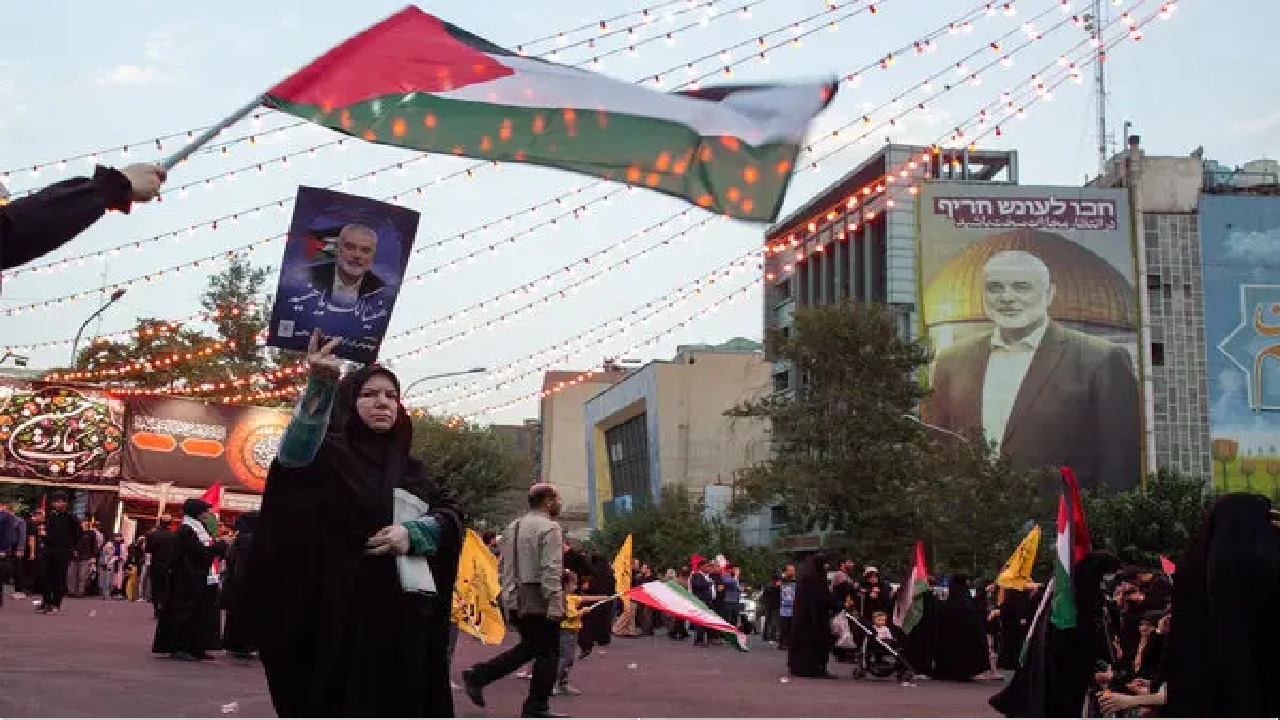The assassination of Ismail Haniyeh, Hamas’ top political leader, in Tehran on July 31 has ignited intense global speculation and concern. The incident, occurring amid significant geopolitical events, has heightened the risk of escalation between Iran and Israel. This analysis delves into the assassination’s details, the subsequent reactions, and potential future implications for the region.
The Assassination: Details and Timing
On the early hours of July 31, Ismail Haniyeh was fatally struck by an “airborne projectile” while staying in a building designated for Iranian military veterans in Tehran. This attack resulted in the deaths of Haniyeh and his bodyguard, Wasim Abu Shaaban. Haniyeh was in Tehran for the inauguration of Iran’s new President, Masoud Pezeshkian. Prior to the assassination, Haniyeh was seen in a show of solidarity with Pezeshkian, highlighting the significance of the event he was attending.
Coinciding with the assassination, Israeli warplanes bombed a residential building in Beirut’s southern suburbs, targeting Hezbollah commander Fuad Shukr. This strike, which resulted in Shukr’s death and injuries to more than 70 people, added to the region’s already heightened tensions.
Reactions from Iran and Its Allies
Iran’s reaction to Haniyeh’s assassination has been both swift and severe. President Masoud Pezeshkian vowed to uphold Iran’s territorial integrity and ensure that the “terrorist occupiers” regret their actions. The new administration’s stance underscores the gravity with which Iran views this attack.
Hamas, which has accused Israel of violating Iranian and Lebanese sovereignty, has warned of “enormous consequences” for the region. The organization’s armed wing has characterized Haniyeh’s assassination as a “watershed” event, signaling a dangerous escalation that could have broad regional repercussions.
Iran’s Supreme Leader, Ayatollah Ali Khamenei, has declared that the assassination provides grounds for severe retaliation. His statement emphasizes Tehran’s determination to avenge Haniyeh’s death and suggests that Israel has prepared for “harsh punishment.” The rhetoric reflects a resolve to respond decisively, though the specifics of Iran’s strategy remain unclear.
Potential Iranian Retaliation: Direct or Indirect?
The critical question now is how Iran will choose to retaliate. According to The New York Times, Iranian officials, including members of the Revolutionary Guards, report that Supreme Leader Khamenei has issued an order for direct retaliation against Israel. This order came after an emergency meeting of Iran’s Supreme National Security Council, indicating high-level engagement in planning the response.
However, experts are divided on the likelihood and scale of Iran’s retaliation. Retired U.S. Marine Colonel Stephen Ganyard suggests that while Iran will feel compelled to act, the extent of their response is uncertain. The complexity arises from the fact that Hamas, a Sunni organization, contrasts with Iran’s Shia leadership. This sectarian difference complicates the decision to engage in an all-out war over a proxy leader.
Historically, Iran has opted for indirect responses to similar provocations. For instance, in April, following an Israeli airstrike in Syria that killed several Iranian personnel, Tehran launched drones and missiles at Israeli targets. Despite this, Israel’s Iron Dome defense system intercepted most of the projectiles, limiting the effectiveness of Iran’s retaliation.
Regional analyst suggests that Iran might use its proxies, such as Hezbollah, to target Israeli military installations rather than directly engaging with Israel. This strategy would allow Iran to exert pressure without initiating a full-scale conflict. The focus would likely be on significant military targets rather than civilian infrastructure.
Potential Impact and Regional Implications
The potential for Iranian retaliation, whether direct or indirect, could have profound effects on the West Asian region. A significant Iranian response could further complicate ceasefire negotiations in Gaza and exacerbate the humanitarian crisis, which is already severe due to ongoing conflicts.
Moreover, the assassination of Haniyeh and the ensuing tensions might disrupt diplomatic efforts by countries like Qatar and Egypt, which have been mediating ceasefires and negotiating hostage releases. The broader implications could destabilize regional alliances and disrupt ongoing peace processes.
Despite the intense rhetoric, some experts argue that an all-out war may not be in Iran’s best interest. Joost Hiltermann of the International Crisis Group points out that Iran is likely to respond only when its vital interests are at stake. Given that Haniyeh was not an Iranian national but a proxy leader, some analysts believe that Iran may prefer to avoid a direct conflict with Israel.
In conclusion, the assassination of Ismail Haniyeh and the subsequent reactions highlight the volatile nature of Middle Eastern geopolitics. As Iran navigates its response, the situation remains fluid, with potential for both direct and indirect consequences that could shape the future stability of the region.
(With inputs from agencies)








